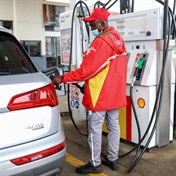
Almost one-third of South Africa’s electricity will be generated by coal power stations by 2050, despite global climate change talks encouraging nations to move to a zero-carbon economy.
That is if South Africa follows the base scenario in the draft of the latest Integrated Resource Plan (IRP) that the department of energy released this week.
This has upset South Africa’s environmentalists as they say it goes against the spirit of the historic Paris Agreement, which South Africa ratified at the beginning of November.
The agreement was made to reduce nations’ emissions to avoid the catastrophic effects climate change will have, including rising sea levels, higher global temperatures and more droughts and heat waves.
South Africa’s climate change pledge made at the 2009 Copenhagen climate talks and included in last year’s Paris Agreement commits the country to peak its emissions around 2025, whereafter it has to plateau for a decade and then decline in absolute terms.
The Centre for Environmental Rights (CER) said it was deeply concerned that the IRP still intended for coal to make up a significant portion of South Africa’s generation capacity by the year 2050, while renewable energy sources would only make up 25%.
“What is being proposed by the IRP flies in the face of the Paris Agreement,” said Nicole Löser, an attorney who deals with pollution and climate change at the CER.
WWF SA’s policy and futures unit head, Saliem Fakir, said that South Africa’s commitments meant they had to reduce carbon emissions.
“To meet these commitments we need to install as much clean energy as possible at the most affordable price,” he said. Jaco du Toit of the WWF SA’s climate change programme said any further expansion of carbon-intensive infrastructure would make it impossible for South Africa to realise its international commitments.
At present, the new IRP proposes to provide 17 600 megawatts using solar energy and 37 400MW using wind between 2020 and 2050. Installed coal capacity would fall to 15 000MW by 2050 with provision for 35 000MW using gas generation and 55 000MW using renewables.
Löser said that providing for new coal to come online in 2028 would clearly contravene South Africa’s commitments.
“There are plans for new coal-fired power stations to be commissioned from as late as 2028, which will add a further 15 000MW of new coal to our grid between 2028 and 2041,” Löser said. “These plants would be likely to have at least a 50-year lifespan, exposing us to many decades of further greenhouse gas emissions.”
The IRP envisages that Eskom will decommission 13 of its 15 coal-fired power stations with installed capacity of 37 000MW between 2020 and 2050.
However, Eskom has other plans. Eskom’s generation manager, Matshela Koko, has indicated on several occasions that it would extend the lives of its ageing coal-fired stations, while moving to nuclear.




 Publications
Publications
 Partners
Partners








